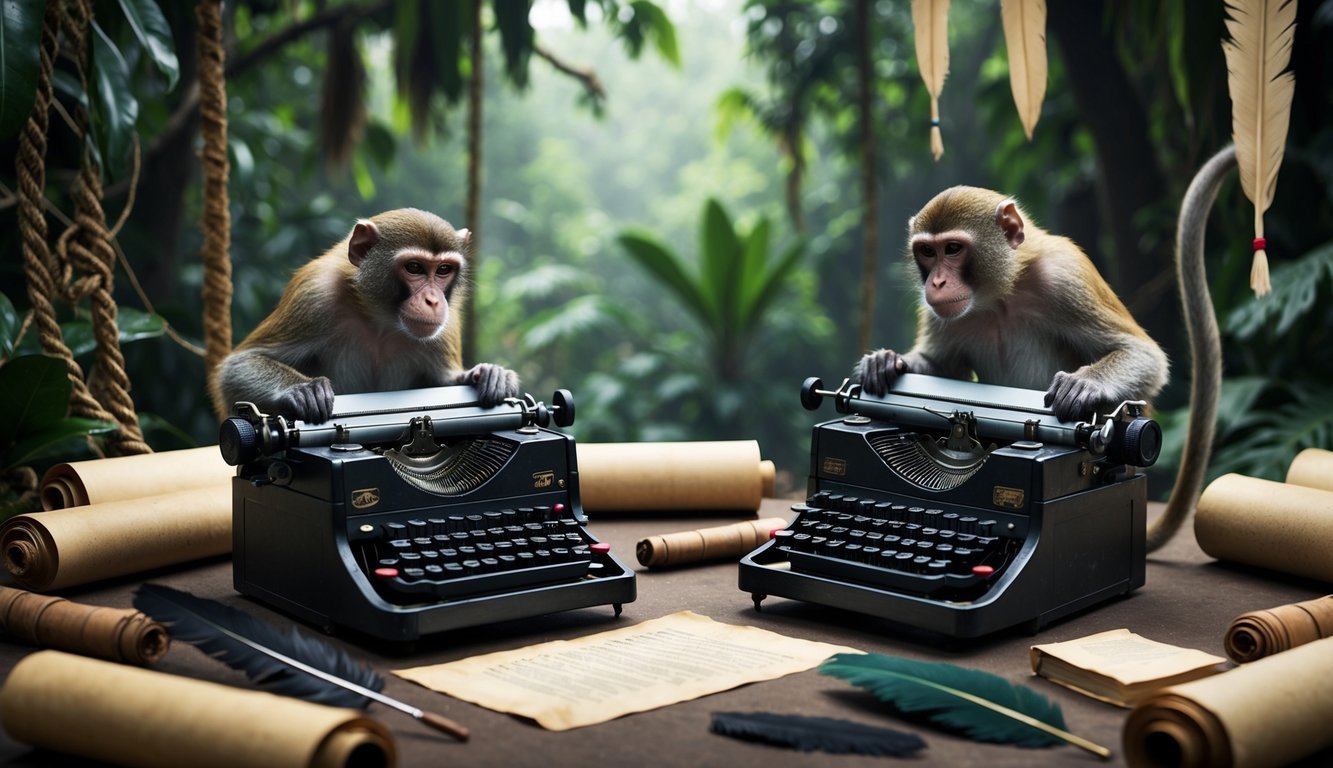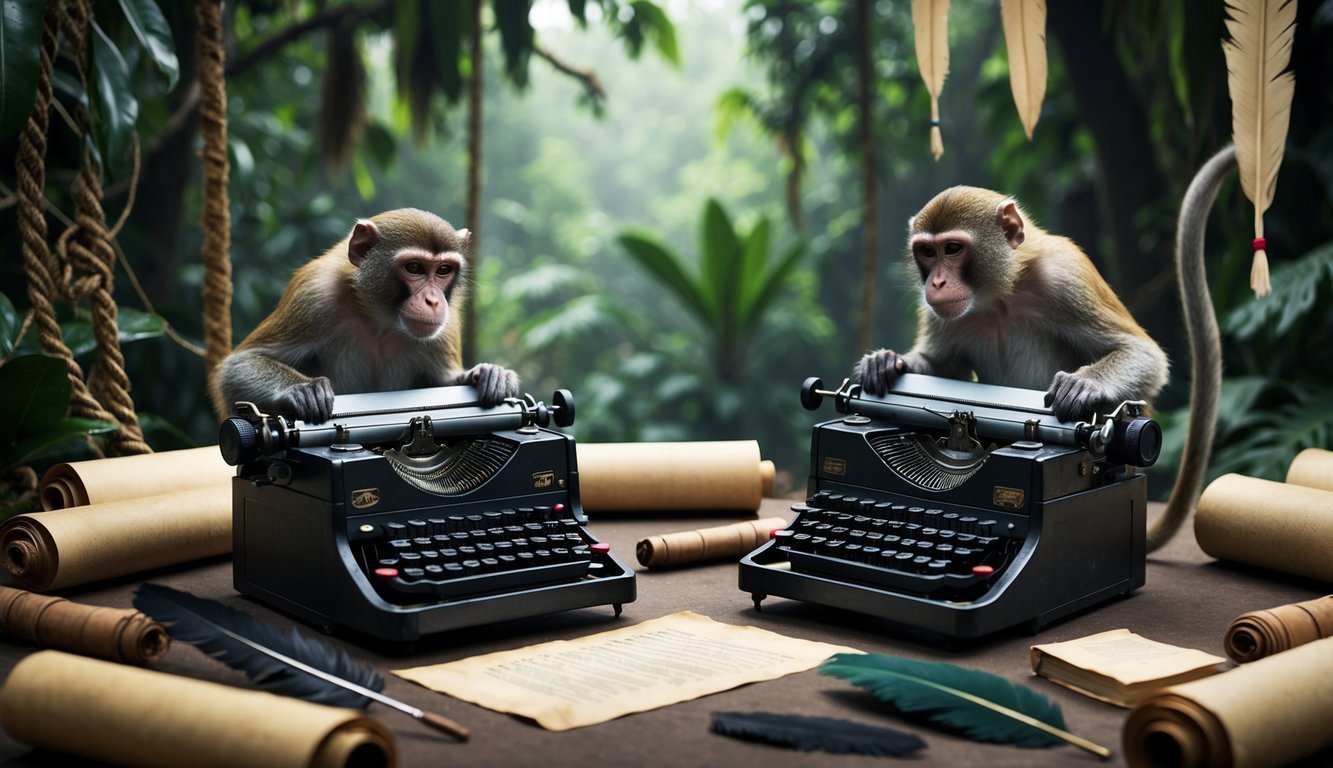
The infinite monkey theorem, a captivating blend of randomness and probability, suggests that given enough time, a monkey could eventually produce works similar to those of Shakespeare. But does this whimsical notion hold any water in the reality of our universe?
Understanding the Theorem
Originally proposed by mathematician Émile Borel in 1913, the infinite monkey theorem has sparked curiosity and debate as a fascinating thought experiment that delves into the nature of randomness. Yet experts caution that, within the constraints of our finite universe, the theorem’s implications may be far-fetched. The chances of a monkey randomly composing a coherent piece of text are astronomically low, but when pondering the vastness of infinity, even the most improbable events might eventually occur.
Stephen Woodcock, a mathematician with a focus on physical sciences, highlights a crucial point: our universe, while enduring for a lengthy span, is not endless. Though myriad monkeys exist across time, they will never achieve an infinite count.
Probabilistic Investigations
To probe the theorem’s validity, Woodcock and a colleague embarked on a mathematical investigation, specifically examining theoretical chimpanzees, our genetically close relatives. They calculated the likelihood of a chimpanzee producing different types of text—ranging from simple words to complete works of literature—over a typical lifespan of about 30 years.
Their results illuminated the staggering improbability inherent in this task. A chimp has about a 5% chance of typing the word “banana” during its lifetime. The odds plummet when it comes to crafting coherent sentences; the probability of typing something like “I chimp, therefore I am” is a minuscule 2 x 10^-20. Such calculations exhibit the near certainty that no contemporary chimp would reproduce that phrase in its natural life.
In a fantastical scenario where chimps could breed, write, and continue typing until the end of the universe, the prospect of one eventually articulating a coherent sentence becomes more plausible. However, the likelihood of a chimp producing an entire book, let alone the complete works of Shakespeare, remains hopelessly slim. The chances are so close to zero that Woodcock describes it as a “vanishingly small chance,” especially as our universe approaches its eventual heat death.
The Complexity of Reality
These findings sharpen the focus on the difference between theoretical infinities and the realities of our temporal existence. While something may be guaranteed in an idealized infinite framework, it does not bear meaningful relevance to the tangible world we inhabit.
The research conducted by Woodcock and his colleague relied on several assumptions, such as the idea that chimps would randomly type one character every second for 30 uninterrupted years on a simplified keyboard. Notably, previous simulations attempting to illustrate the infinite monkey theorem, including a 2002 art exhibit featuring Celebes crested macaques, produced largely nonsensical outputs.
These experimental endeavors serve as a reminder of the unpredictable character of animal behavior. Unlike mechanical devices acting by fixed laws, people and other creatures display unique tendencies that defy straightforward calculations. The infinite monkey theorem, while a whimsical illustration of probability, ultimately underscores the complexities of reality that simple mathematical ideas cannot fully capture.
“`htmlStudy Details:
- Title: Could monkeys really type the complete works of Shakespeare?
- Authors: Stephen Woodcock, et al.
- Publication Date: 2024
- Link: Research Article

